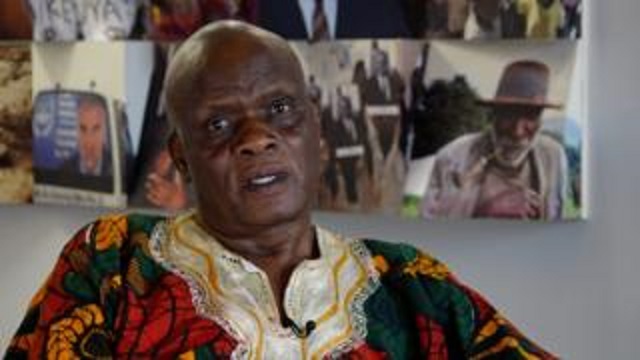
The 67-year-old Kenyan told the BBC that he was in profound shock when doctors told him in 2013 that he had stage-three breast cancer, turning his life upside down.
“I was in denial and wondered why such a disease, which is not male-oriented, had singled me out of millions of men in the world,” Mr Musonga said.
It all started with a painless lump in his right nipple that grew larger as time went by. Then came the nipple discharge and occasional chest pains.

Doctors kept on giving Mr Musonga, a father of five, painkillers to treat something they were unsure about.
And despite the fact that his breasts were unusually bigger than those of most men, Mr Musonga never thought it was anything to worry about.
He sought medical help when the skin on his right breast began to ulcerate.
Tests on a tissue sample confirmed that Mr Musonga had breast cancer.
“I hadn’t known that breast cancer affects men and therefore didn’t notice that what was affecting me was breast cancer,” he said.
Dr Sitna Mwanzi, a consultant medical oncologist at the Aga Khan University Hospital in the capital, Nairobi, said male breast cancer is not very common.
Her experience showed that for every 100 breast cancer patients, one will be male.










